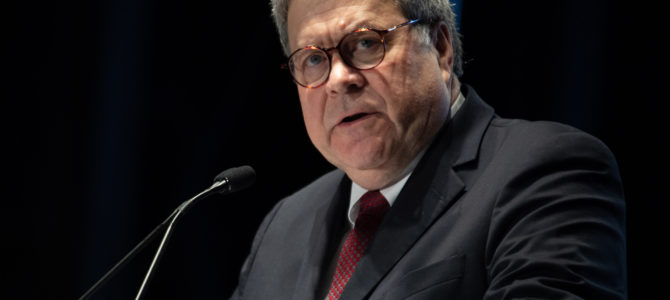The Justice Department pushed back on a federal judge’s ruling last week to re-litigate the conclusive findings of the Mueller report while charging Attorney General William Barr of creating a “one-sided narrative.”
“The court has grave concerns about the objectivity of the process that preceded the public release of the redacted version of the Mueller report,” ruled D.C. District Court Judge Reggie Walton, who was appointed by President George W. Bush.
Walton accused Barr of rushing a public summary of Special Counsel Robert Mueller’s report on Russian collusion to the public prior to its full release while keeping sections redacted omitting key information that Walton argues contributed to “a narrative that is clearly in some respects substantively at odds with the redacted version of the Mueller report.”
A spokesperson for the Department of Justice rejected Walton’s claims as “contrary to the facts,” and noted that the redactions made in the final report were decided in part by members of the special counsel’s own team.
“The original redactions in the public report were made by Department attorneys, in consultation with senior members of Special Counsel Mueller’s team, prosecutors in U.S. Attorney’s Offices and members of the Intelligence Community,” Department spokesperson Kerri Kupec said in a statement. “There is no basis to question the work or good faith of any of these career Department lawyers. The Department stands by their work.”
The recent court ruling comes out of a Freedom of Information Act case filed by BuzzFeed journalist Jason Leopold and the Electronic Privacy Information Center seeking to gain access to the full unredacted version of the report under the law.
In April last year, Special Counsel Mueller wrapped up his more than two-year investigation supported by endless media coverage, with a 448-page report finding not one person on President Donald Trump’s campaign, let along Trump himself, colluded with the Russian government in the 2016 election. The report also exonerated the president on charges of obstruction of justice for exercising his constitutional authority to fire FBI Director James Comey.
Leading up to the redacted release of the report, Barr reviewed Mueller’s findings over two days and made public a four-page summary outlining its findings. Mueller later sent a letter to Barr writing that Barr’s account “did not fully capture the context, nature, and substance,” of his team’s “work and substance.”
Barr dismissed Mueller’s criticisms as “snitty,” and wrote in a letter to lawmakers in March prior to the report’s release that the media had mischaracterized his summary explaining that it “did not purport to be an exhaustive recounting.”








